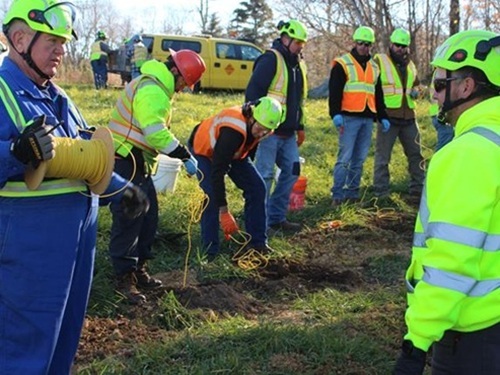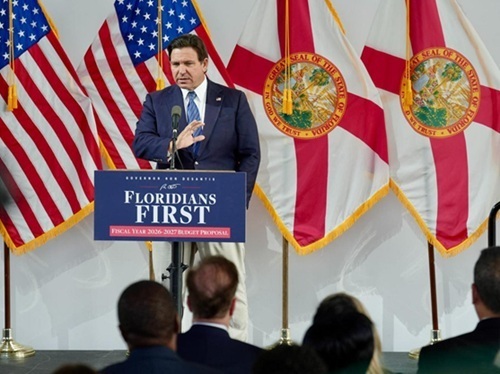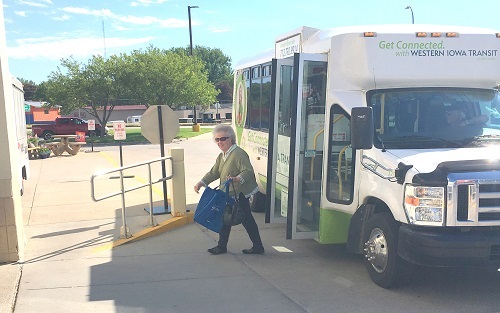The Iowa Department of Transportation recently released an update to the Iowa Public Transit Long Range Plan to tackle changes to the operating environment and current needs of Iowa’s public transportation system – particularly for rural residents.
Meanwhile, the Wisconsin Department of Transportation is working with the Wisconsin Department of Administration to disburse $18 million in grants to improve local transit offerings.
[Above photo by the Iowa DOT.]
“[People] depend on reliable public transit systems for everything from getting to work or school safely, visiting the doctor, and everyday things like grabbing groceries,” explained Wisconsin Governor Tony Evers (D) in a statement.

“It is not only a more sustainable form of travel, but it is also an economic driver, and this critical investment will support communities across our state,” he said.
The Iowa DOT noted in a statement that it spent the last 18 months updating its long-range transit plan to help guide investments among all of Iowa’s 35 public transit systems and support Iowa’s vision of rightsizing the system in line with the impact of the COVID-19 pandemic and longer-term historical trends. Key focal points of that plan include:
- A number of challenges exist which inhibit the public transit system from achieving its potential, including use of older transit vehicles, having a limited pool of qualified transit vehicle drivers, perceptions of overcrowding on transit vehicles, and rapidly changing technologies such as on-demand ride hailing apps and automated vehicles.
- Iowa’s rural transit regions continue to see a decrease in population and an increase in the age of riders while urban transit regions are experiencing population growth and an increase in population density. This presents unique challenges for ensuring all Iowans have adequate means of getting to work, to medical appointments, or any other destinations.
- Based on recent studies, there is a net positive return-on-investment for public transit with net economic benefits for every dollar invested in providing public transit services.
- There is a current need to address accessibility of the public transit system for all riders while supporting workforce development by connecting employees with jobs. Recent pandemic responses also show a need to support essential segments of the economy by ensuring a reliable transportation system continues to operate regardless of disruptions.
In Wisconsin, the second round of Transit Capital Assistance Grants made possible through the Volkswagen Mitigation Program will enable local transit systems in Beloit, Wausau, Sheboygan, Madison, Eau Claire, Racine, Green Bay, and La Crosse to purchase 34 public transit buses in total.

“This is a much needed boost to capital investment in our public transit systems, investments that will increase fleet performance and reduce maintenance costs,” explained Craig Thompson, Wisconsin DOT’s secretary-designee.
He added that the first round of Transit Capital Assistance Grants, awarded in 2019, provided $32 million of Volkswagen funds to 10 communities to replace 58 eligible public transit buses.
In a separate statement, the Wisconsin DOT noted that it recently issued $1.25 million via its Harbor Assistance Program to fund emergency repairs needed at Port Milwaukee due to flood damage caused by a January storm surge.
Historic high-water levels on Lake Michigan, combined with strong wind, resulted in 4 inches to six feet of flooding to approximately 60 percent of Port Milwaukee property.
“Port Milwaukee is a vital transportation asset,” noted Wisconsin DOT’s Thompson, adding that the port handled over 2.6 million tons of cargo in 2019 – its highest level in over a decade.
“The port plays an essential role in moving both people and goods,” he said. “This investment will preserve and grow one of our state’s unique resources benefiting industry and travel for years to come.”
 States
States
NCDOT Staff Participate in ‘Explosive’ Technical Training
December 19, 2025 States
States

